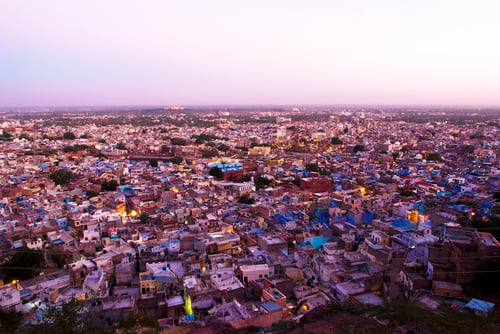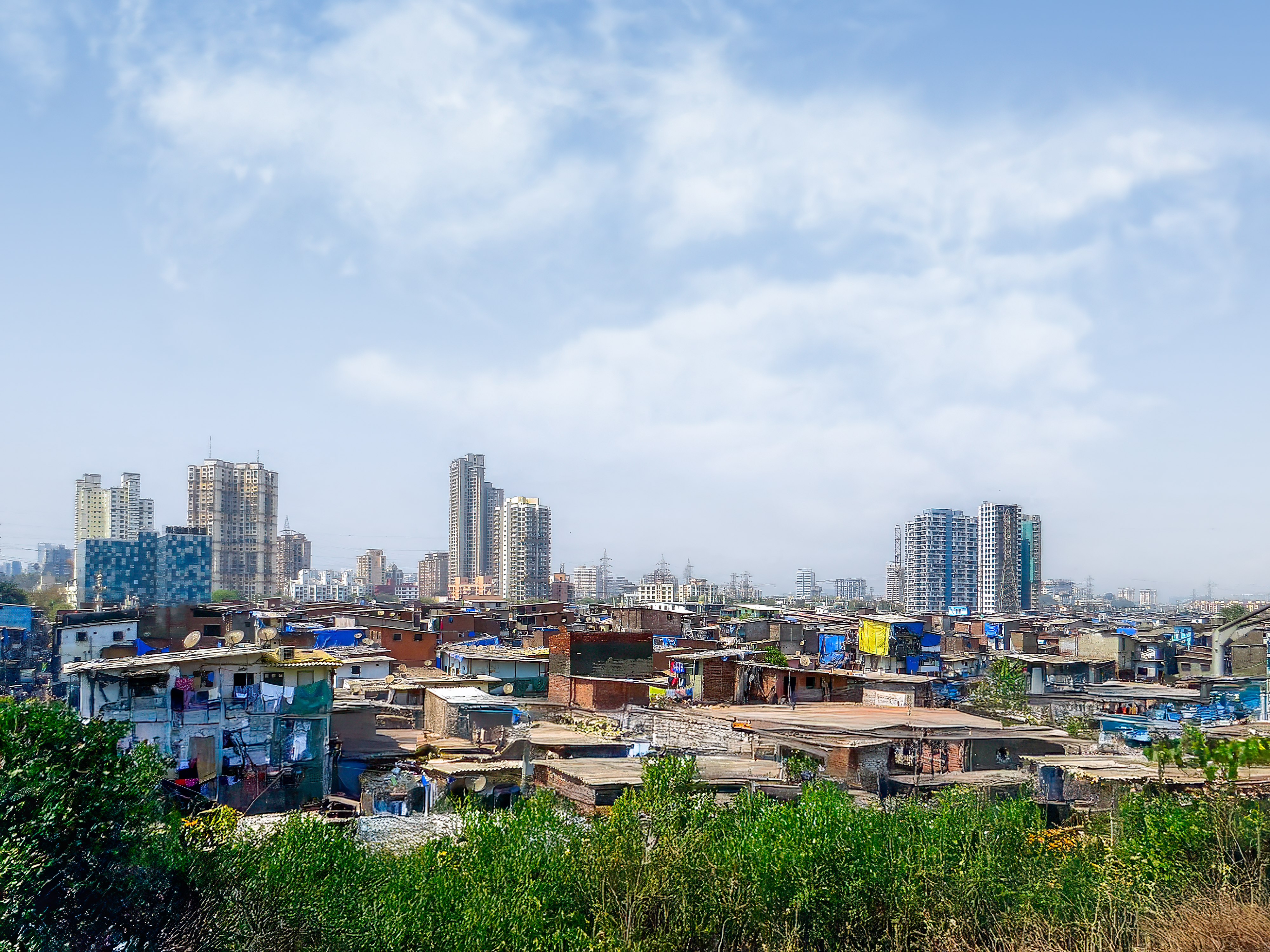Passive Daytime Radiative Cooling
Decrease indoor heat, lower emissions, and save lives
An innovative cooling technology
Passive Daytime Radiative Cooling (PDRC) may be one of this decade’s most promising material advancements and a pathway to solving the cooling dilemma — reducing climate impact associated with conventional cooling technologies, while showing potential for significant human health benefits to building occupants.
Unlike conventional cool roofs that only reflect sunlight, PDRC also emits mid‑infrared radiation that passes directly through the atmosphere into deep space, effectively removing heat from buildings.
RMI and Third Derivative are advancing PDRC products specifically as they can provide affordable, scalable cooling, reduce emissions, and protect the most vulnerable communities during intensifying heat waves.

Piloting PDRC Around the World
Third Derivative’s pilot projects are designed to validate this promising technology, and generate open-source evidence to support equitable, transparent deployment of sustainable cooling solutions.
Third Derivative and RMI are working to validate the performance of passive daytime radiative cooling materials across diverse climates and building types to accelerate commercialization in the United States and India. These pilots are designed as validation and learning exercises to assess performance and inform equitable deployment strategies. Our work will provide critical data on PDRC’s cooling impact and scalability, as well as its potential to enhance health, increase human productivity, lower energy consumption, and reduce emissions in heat-vulnerable regions.
Although PDRC technologies are progressing through the traditional research-to-market pipeline, awareness and adoption remain limited. Without intervention, this could take years (or decades) on its own. Our ambition is to radically compress the typical timeframe between prototype and large-scale deployment. To do so, the crucial first step is to test and validate under real-world conditions. Subsequent phases will involve transferring the tech from where it is being developed to where it is most needed, driving down the cost via aggregated procurement or an advance market commitment, and working with a range of private and public sector actors to roll it out at scale.
With deep expertise across heat resilience, sustainable cooling, buildings, demand aggregation, and scaling critical climate technologies, RMI and Third Derivative are uniquely positioned to lead this effort.
India Pilot
Working closely with local research institutions and grassroots organizations, we will be piloting PDRC solutions with households in an informal (or self-built) housing community in Ahmedabad, India (with untreated homes serving as controls). We will validate the performance of this technology, demonstrate the cooling impact of the solutions, and measure the health impacts on the household occupants.
US Pilots
We will be conducting two PDRC pilots in the United States. The first focuses on testing several PDRC solutions on select commercial buildings to validate the technology’s performance under real-world, energy-intensive conditions. This work will help determine how PDRC performs across varied contexts, without implying endorsement of specific building types or development models. The second pilot, located in Boulder, Colorado, is evaluating PDRC products applied to affordable housing to assess their potential for improving comfort and reducing cooling demand in residential settings.
Call For Solutions
Pilot opportunity for high-performing PDRC products
We invite all eligible PDRC innovators to apply to participate in one or several of our PDRC pilot opportunities. Following our review, your company may be invited to pilot your high-potential, high-performing PDRC product on informal housing in Ahmedabad, India, or on commercial buildings in the United States. Both opportunities offer participating manufacturers the chance to deploy their products, gather data, and get early exposure with major asset owners quickly with fewer financial barriers.
Third Derivative and RMI will manage the pilots, develop reports based on the conclusions drawn from the data collected, and share open-source material to ensure replicability. As a participating manufacturer, if selected, your product material and shipping costs for the study will be fully covered by Third Derivative, and installation of your product will be facilitated by our technical partners in each location.
Participation in this pilot is distinct from Third Derivative’s accelerator program. Eligible companies may submit a separate application for consideration in Third Derivative’s portfolio.
PDRC Product Evaluation Criteria
The technical criteria require the participants to deliver a passive daytime radiative cooling product that reduces surface temperatures by at least 10°C below ambient conditions. PDRC products will be evaluated on the criteria below.
- Cooling Impact will be evaluated through the product’s solar reflectivity, emissivity, cooling power, and demonstrated roof surface temperature reduction translated into indoor air temperature reduction.
- Affordability will be evaluated through the anticipated cost of manufacturing at scale based on input materials and the production process.
- Scalability will be evaluated based on the availability and supply chains of input materials, installation requirements and ease of application, and versatility in substrates/ surfaces on which the product can be applied.
- Durability and anticipated product lifespan under different conditions will be evaluated through the product degradation (reduced SRI and emissivity) measured during lab testing by simulating multiple years of wear-and-tear.
- Toxicity will be determined by the presence or absence of PFAS, known carcinogens, VOCs, and other environmentally toxic compounds.
- Embodied carbon will be measured through a life cycle assessment or estimate and compared to the operational carbon savings for the lifespan of the product.
Get Involved
We’re seeking mission-aligned corporate and investor partners to support our Passive Daytime Radiative Cooling work. Complete the form above to express your interest.


.png)
